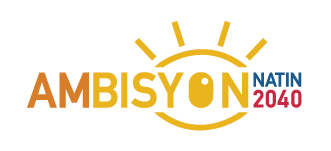Manny Villar (Manila Bulletin)
(Second of three parts)
In this series of columns I wanted to focus on the cornerstone of the Duterte administration’s development plan. If he promised change during the electoral campaign, the Philippine Development Plan of 2017-2022 shows us what that change would look like.
According to the National Economic Development Authority (NEDA), which spearheaded its drafting, the PDP 2017-2022 is the first medium-term development plan anchored on a long-term vision, of AmBisyon Nation 2040.
Secretary Ernesto M. Pernia has proclaimed that “it is the first of the four six-year plans that aim to lay down a 25-year vision for the country and that the goal is to make the Philippines “a prosperous, predominantly middle-class society where no one is poor” by 2040; where people “live long and healthy lives, be smart and innovative, and live in a high-trust society.”
Specifically, the medium-term development plan aims to lay a solid foundation for inclusive growth, a high-trust society, and a globally-competitive knowledge economy by grounding its development thrusts on Malasakit, Pagbabago, and Patuloy na Pag-unlad.”
One of the things that impressed me with the thrusts of the PDP 2017-2022 is the focus on “malasakit.” I think it translates to compassion or sympathy, or even, love and concern for others in English. I am glad that our socio-economic development plan is anchored on “malasakit.”
The President, during his campaign, has in fact emphasized that by touting his slogan, “Tapang at Malasakit.” It is an important goal. I have always believed that our goal should not simply be economic growth but to lift all our poor kababayans out of poverty.
What we are as a society, to paraphrase a popular quote, is determined by how we treat the people who have less in life. It is our compassion and love for others that prompt us to work hard so we can create prosperity not just for us and our family but for others too.
But how does government intend to achieve this lofty goal?
The plan aims to “ensure people-centered, efficient and clean governance.” Government offices will be equipped with adequate facilities, personnel will be trained and systems will be improved to ensure the prompt delivery of services. Citizens will be also empowered to engage with the government.
This lays the framework for citizens and government working together to achieve progress. Why would you work with government you perceive to be corrupt? Why would you participate in government processes that you do not trust?
Since Day One in office, the President has forcefully set out the anti-corruption drive of his administration. He has said that no corruption will be tolerated. He has, in fact, fired a number of officials, some of them even close to him, on suspicion of corrupt practices. This is what leading by example is all about.
He has also mandated government offices to provide efficient and timely services. He has warned officials that he does not want our people standing in long queues for seeking basic services. Now, that is ‘malasakit’.
Another important aspect of the plan is ensuring that the “administration of justice will be perceived as swift and fair. It aims to accomplish this by shifting from a “fragmented mode of delivering justice, to a “sector approach.”
This means that “processes – from lodging of complaints to investigation, prosecution, and conviction – will be streamlined and harmonized across the different agencies in the executive and judiciary branches of government.”
I believe this is very crucial in strengthening the trust of our citizens in government. Getting justice is a key element in people’s lives that determine how they view efficiency of government. If you are aggrieved and you seek justice you should be able to get fair treatment in an efficient and systematic manner.
A justice system that is responsive to the grievance of ordinary folks which does not discriminate against the poor and the marginalized is crucial if we want our people to trust that government actually works for them.
This is an important exemplification of “malasakit.” I am sure we have heard this sometime in our lives: “Walang katarungan sa bansang ito; walang malasakit sa tao.” We need to put a stop to injustice and I am glad that the first development plan under the Duterte administration has prioritized this.
